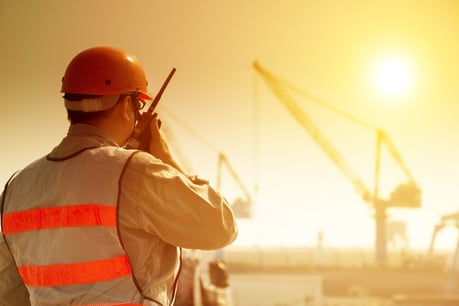In 2003, Marsh Insurance published a study of 100 accidents in petrochemical facilities that were caused by mechanical integrity failures. The average cost for physical damage alone was the equivalent of over $116 million in today’s dollars. The estimated costs became even more staggering when loss of production was added, not to mention the safety threat.

The petrochemical industry has come a long way since then, but mechanical integrity is still of vital concern for both safety and facility performance. Although piping failures account for a majority of these petrochemical losses according to the Center for Chemical Process Safety, applying the best practices of ensuring mechanical integrity to all your equipment and structures can save you money and prevent significant down time.
This includes considering how you can protect your investment in your temporary fabric structures by making sure they are installed correctly and regularly inspected.
Expert Installation. Temporary structures are complex, highly-engineered structures designed to stand up to the harshest conditions. They also need to be installed and removed quickly to keep up with the pace of the petrochemical industry. No matter how easy professional crews make this installation look, the process must be done in a very specific order with specialized tools--some developed specifically for the type of structure being installed. As with any specialized craft, just one small change to the process can have serious and costly consequences.
Costly mistakes can be prevented with greater adherence to the mechanical integrity principle of proper installation. Sometimes companies want to utilize their own laborers to install a temporary structure. From a financial standpoint, this can seem like a good decision as these laborers are already on the payroll. Yet, just as you would never hire a boilermaker to be an electrician or vice versa, you cannot assume the basics of construction are universal. Specialized crafts require specialized expertise. This includes the expertise to install and remove a complex, highly-engineered structure safely and reliably.
The level of quality you get when you hire a trained and experienced crew to install and remove your temporary structures will more than make up for any perceived extra expense. In fact, when you lease your temporary structures, these expert crews are often included in your contract, giving you both peace of mind and control over your budget.
Regular Inspections. In some ways, because of their unique features, temporary structures can prove more difficult than traditional construction when it comes to inspection. This includes features like their ability to be constructed on a variety of ground surfaces. While flexibility is a boon for our industry, it also means crews must be experts in knowing how to safely anchor temporary structures on anything from concrete to gravel or dirt. This anchoring should also be regularly inspected, especially if a structure is reinstalled or moved. Improper anchoring can significantly compromise a structure’s integrity and ultimately compromise your safety.
When you lease your temporary structure, inspections by a trained expert can be scheduled regularly as part of your contract. In addition, you also have a reliable resource should damage occur. Your temporary structure vendor’s expert can tell you quickly whether something is everyday wear-and-tear or an issue that needs to be addressed.
When you apply the principles of mechanical integrity to your temporary structures, you ensure the safety of your crew and your financial investment. Never underestimate the engineering complexity of your temporary structures or the precision and skill needed to install them. Once stalled, bring in trained professionals for regular and thorough inspections. Just as you rely on your crews in specialized crafts to work with care, with proper installation and maintenance, your specialized temporary structures will perform dependably and safely.
Content originally published in BIC Magazine.
